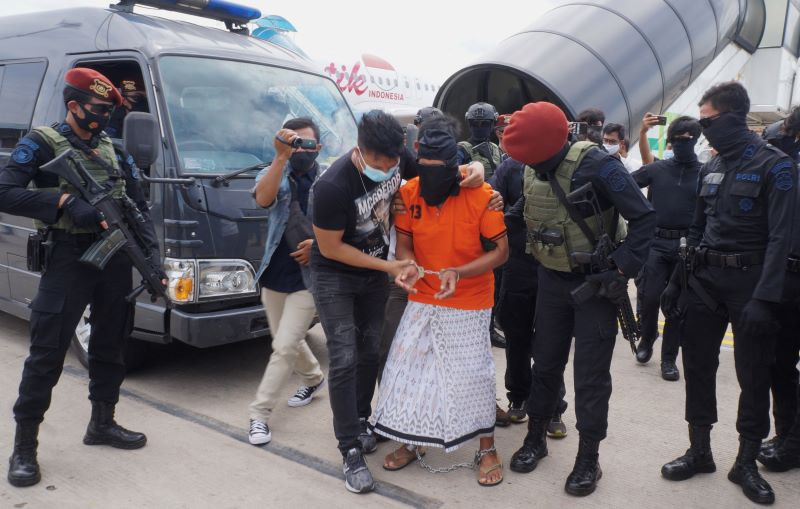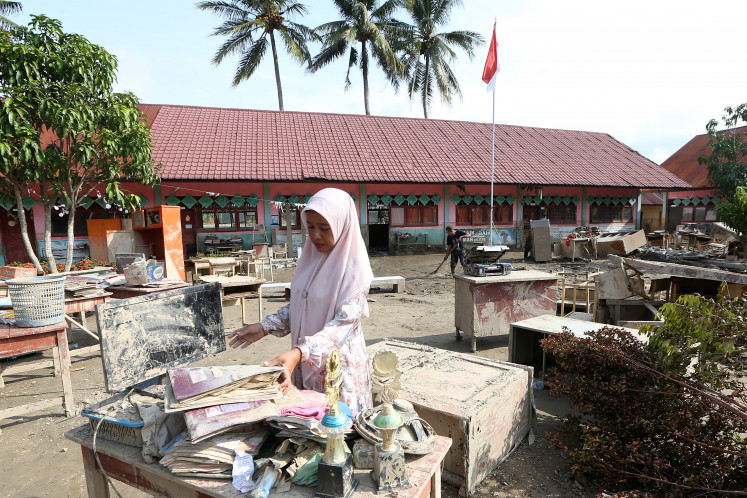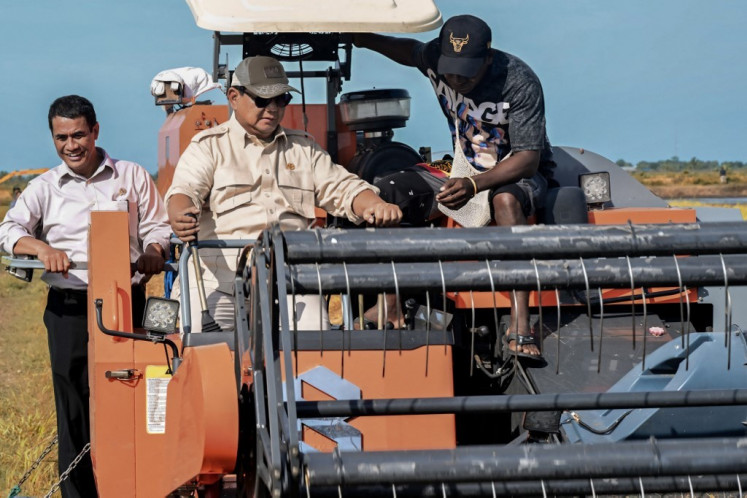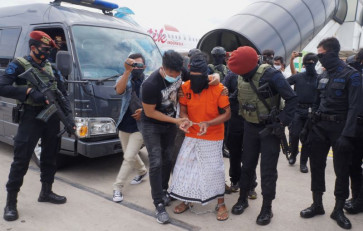Popular Reads
Top Results
Can't find what you're looking for?
View all search resultsPopular Reads
Top Results
Can't find what you're looking for?
View all search resultsJI leader release: A test for reintegration strategy
Reintegration of high-profile extremists requires tailored programs addressing historical authority, relational networks and psychological needs.
Change text size
Gift Premium Articles
to Anyone
 Big catch: Personnel from the National Police’s Densus 88 counterterrorism squad escort Zulkarnaen (center, in orange shirt), 57, a senior leader of the disbanded terror group Jamaah Islamiyah (JI) linked to Al Qaeda, as he arrives on Dec. 16, 2020, at Soekarno-Hatta International Airport in Tangerang, Banten. (AFP/Fajrin Raharjo)
Big catch: Personnel from the National Police’s Densus 88 counterterrorism squad escort Zulkarnaen (center, in orange shirt), 57, a senior leader of the disbanded terror group Jamaah Islamiyah (JI) linked to Al Qaeda, as he arrives on Dec. 16, 2020, at Soekarno-Hatta International Airport in Tangerang, Banten. (AFP/Fajrin Raharjo)
A
bu Rusydan, a founding member of the disbanded terrorist group Jamaah Islamiyah (JI), is set to soon be released from Semarang’s Class 1 Correctional Facility. His return presents both an opportunity and a challenge for Indonesia’s counterterrorism and reintegration efforts.
Shutting down JI as a visible, hierarchical organization did not end its ideology. The dismantling targeted the formal structure, while the global jihad narrative and ideological networks remained active. Understanding this distinction is key: Reintegration must navigate not only the individual’s history and mindset, but also the enduring influence of an ideological movement that transcends borders.
Having met Rusydan multiple times, both inside prison and at his modest home in Kudus, Central Java, I have seen first-hand the nuances of his personality, his historical authority and the complex dynamics surrounding high-profile extremists. These encounters illustrate that deradicalization is rarely linear, and reintegration requires more than procedural programs; it demands human-centered, trust-based engagement.
Born as Thoriquddin into a family deeply connected to Indonesia’s Darul Islam movements, Rusydan alone among six siblings pursued an ideological path. His early education under Abdullah Sungkar, a key figure in JI’s formation, and military training in Afghanistan in the 1980s exposed him to major jihadist networks.
We now understand that the mobilization of activists like Rusydan, Osama bin Laden, and Abdullah Azzam had been intertwined with the Cold War rivalry between the United States and the Soviet Union. Many fighters received support and training through covert US spy agency Central Intelligence Agency (CIA) operations, as Steve Coll details in Ghost Wars (2004).
It was in this geopolitical crucible that Rusydan met Azzam and bin Laden. Even then, Rusydan showed discernment: Azzam advised him that Indonesia was not a legitimate battlefield for jihad, a principle he later upheld by opposing domestic attacks, including the 2002 Bali bombings.
Although he disagreed with the Bali attack, Rusydan nevertheless endorsed the broader notion of global jihad promoted by bin Laden, seeing it as part of a transnational struggle, even if not applicable on Indonesian soil.


















